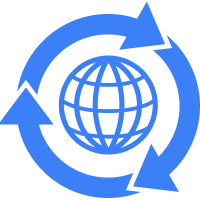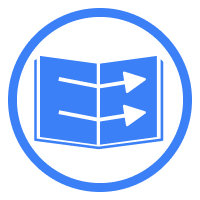Special Awards
The Open Education Awards for Excellence provide annual recognition to outstanding contributions in the Open Education community. While the core categories (individual, resources & practices) remain the same each year, we always look for ways to reflect new trends and emerging innovations in the Open Education Movement. These are the categories that have emerged through the years:
Open Culture

Excellence in an open science initiative. A practice in which others can collaborate and contribute, where research data, lab notes and other research processes are freely and openly available. Acknowledgement of public contribution through citizen science.
Europeana – 2018
Europeana is Europe’s digital platform for cultural heritage. It provides free online access to more than 50 million digitized items drawn from more than 3,700 museums, archives, libraries, and galleries across Europe. Its collections feature a vast diversity of content from 43 countries and in 23 different languages, on various themes and media, including artworks, photographs, fashion designs, 3D images, maps, newspapers, and more. Around 20 million of our collections are openly licensed and suitable for free reuse. Europeana’s work contributes to an open culture and a knowledgeable and creative society.
Europeana Foundation, Netherlands
Open Science

Excellence in an open science initiative. A practice in which others can collaborate and contribute, where research data, lab notes and other research processes are freely and openly available. Acknowledgement of public contribution through citizen science.
Qeios – 2019
Qeios is an Open Science platform reshaping the publication life cycle. From a powerful writing tool to an immediate Open Access platform, Qeios provides researchers with an all-in-one solution to create the world’s best research.
Qeios Ltd, United Kingdom
Open Resilience Award

This award recognizes exemplary leadership (individual or organizational) and Open Education practices implemented in the context of COVID-19. Activities that clearly demonstrate the implementation of open education practices to address opportunities and challenges arising from COVID-19.
Project SALUS, Node COVID-19 – 2020
Project Salus is strengthening indigenous culture, identity, and well-being through public health informatics. Its Node COVID-19 provided verified information in original languages in both written and audio format to promotes public health in indigenous communities. This approach is essential because these communities are extremely vulnerable with limited access to health services and knowledge about the COVID-19 pandemic. Project Salus understood the culture of these indigenous communities and provided information about preventing the spread of the pandemic.
Instituto Americano Cultural SC, Mexico
I Learn at Home – 2020
In March of 2020, due to the COVID-19 pandemic, the government of Spain pronounced a state of emergency. Five days later, UNED Abierta and UNED Solidarity project started the initiative “I Learn At Home.” They encouraged professors and lecturers to open their MOOCs to the world to help teachers, professors, tutors, students, and society in general.
UNED, Spain
http://blogs.uned.es/unedabierta/yomeformoencasa/
National Digital Library of India (NDLI) – 2020
The NDLI is a widely-used national portal of digital knowledge resources, built on an open-source platform with open learning content and open policies. Its website and mobile app allow instant access to more than 35 million OER in a wide range of digital formats. In March 2020, faced with the COVID crisis and the widespread closure of educational institutions, the NDLI demonstrated remarkable resilience and creativity.
It launched a ‘Study at Home’ service for school and university students, covering all subject categories. Next came a ‘National COVID Research Repository’ for researchers and entrepreneurs developing COVID-related solutions. An ‘Examination Preparatory’ service for the 12-million-plus Indian students preparing specifically for their school board examinations followed. The NDLI portal was transformed into a dynamic and user-responsive open education service platform, leading to a massive surge in document views and downloads. The NDLI’s vibrant online advocacy program has helped build mass engagement with its OER and services and firmly established it as a trusted, resilient, and agile national knowledge asset.
Indian Institution of Technology Kharagpur, India
UNESCO OER Implementation

This award recognizes exemplary leadership (individual or organizational) and practices to support the implementation of the UNESCO OER Recommendation.
UNESCO/ICDE Chair Open Educational Movement for Latin America – 2020
In December of 2019, 70 academics from 11 countries (Chile, Colombia, Costa Rica, Ecuador, Peru, Spain, United States, England, Mexico, Nicaragua, Dominican Republic) took up the recommendations for OERs issued the previous month by UNESCO. This group worked collaboratively for two weeks with the Roadmap strategy (transferred from the Open Education Consortium, Paris, 2018) through collaborative work, project-based learning, and video production with mobile devices. The teams designed projects to support the recommendations of UNESCO 2019, resulting in 14 projects and videos designed collaboratively by international network teams. The projects have been uploaded in open access to the Tecnológico de Monterrey Institutional Repository.
Tecnológico de Monterrey, Mexico
https://repositorio.tec.mx/handle/11285/636119

